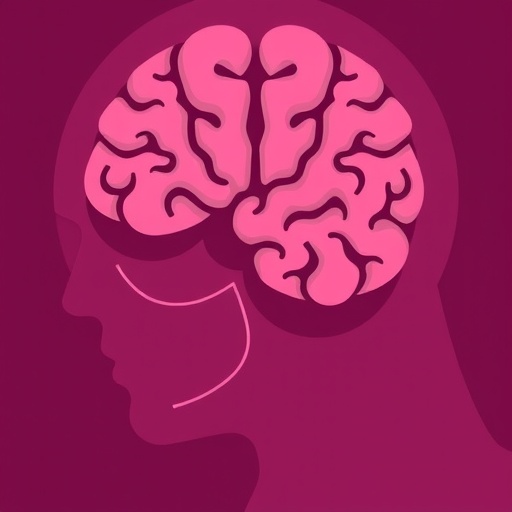In a seminal paper published in the journal Biological Sex Differences, a team of researchers, led by A.M. Beltz, N.C. Tronson, and M. Singh, presents groundbreaking findings that challenge the long-standing assumption that sex differences are only marginally relevant to brain function and mental health. The study, titled “Sex still matters for the brain and mental health across the lifespan,” illuminates how biological sex continues to exert a significant influence on neurodevelopment and psychopathology throughout a person’s life.
The researchers undertook a comprehensive review of existing literature, meticulously drawing from insights gathered across various fields, including neuroscience, psychology, and endocrinology. Their findings suggest that not only do males and females exhibit distinct neurological patterns, but these differences also manifest in unique vulnerabilities to mental health disorders. This dual lens of neurobiology and gender psychology offers a fresh perspective on how we understand cognitive processes and emotional responses.
The implications of this research are profound, extending from basic science to clinical practice. For instance, the authors note that the prevalence of certain mental health conditions, such as depression and anxiety, correlates with sex. Women, for example, are more prone to anxiety disorders, while men are more likely to struggle with substance abuse. By understanding the neurological underpinnings associated with sex, mental health professionals can tailor interventions that acknowledge these differences, thereby improving patient outcomes.
In the realm of reproductive biology, hormonal fluctuations throughout a person’s life also play a pivotal role in mental health. The hormonal changes experienced during puberty, the menstrual cycle, pregnancy, and menopause impact mood and cognitive function, showing how deeply intertwined biology and psychology are throughout different life stages. This connection may help to explain why women are often more susceptible to mood disorders, particularly during periods of significant hormonal shifts.
Moreover, the timing and impact of these hormonal changes can vary vastly between individuals, complicating the clinical picture further. Researchers indicate that there is a need for individualized assessments that consider hormonal profiles alongside neuranatomical data. This viewpoint encourages the development of more nuanced diagnostic criteria and treatment plans that factor in the biological sex of patients, promoting a more holistic understanding of mental health.
Neuroscience has long established that male and female brains are wired slightly differently. These variations can affect everything from cognitive abilities to emotional processing. The dimensions of these differences are not merely academic; they have real-world repercussions. The distinct brain structures and functions related to emotional regulation among genders could influence how stressors are managed, potentially shaping individuals’ lifetime mental well-being.
Furthermore, cultural perceptions of gender roles also intersect with biological differences, making the landscape of mental health and sex even more complex. Social expectations can shape not only how men and women express their emotional struggles but also how they experience them. The paper emphasizes that addressing mental health cannot simply rely on biological factors; societal implications must also come into play, highlighting the need for a multidisciplinary approach to mental health care.
Interestingly, the research also dives into the influence of childhood experiences on sex-specific brain development. Adverse childhood experiences can result in lasting effects on brain function, emotional regulation, and mental health outcomes. The authors urge for more studies that investigate how these early experiences vary by sex, and how they might contribute to the development of psychiatric disorders later in life.
The evidence that sex differences continue to play a crucial role even into older age is also particularly striking. Age-related cognitive decline may not impact all individuals equally, and factors such as hormonal status in post-menopausal women may alter trajectories of brain aging. The authors advocate for further research to discern how life stages interact with sex-related differences in the brain, representing a frontier for both gerontology and mental health research.
As we move toward more personalized medicine, understanding these nuanced differences is not just beneficial—it’s essential. The comprehensive review serves as a clarion call for future studies to explore how sexual dimorphism may inform the development of psychiatric disorders and their treatments. The paper sets the groundwork for an interdisciplinary dialogue that bridges gaps between clinical practice, neuroscience, and socio-cultural studies.
Lastly, while the study’s findings emphasize the importance of sex in mental health paradigms, they also urge caution against reductionism. The authors are adamant that while sex is a significant variable, it does not eclipse the individual variability present within both men and women. A more intricate model of mental health must consider genetics, environment, and lifestyle factors in conjunction with sex.
In conclusion, this critical research reshapes our approach to understanding mental health across the lifespan. It argues compellingly that sex differences in the brain are intricate and significant, influencing developmental trajectories, vulnerability to disorders, and treatment responses. As we enhance our understanding of these differences, we’ll be better positioned to address mental health challenges in a way that is informed, inclusive, and effective.
Subject of Research: The influence of biological sex on brain development and mental health across the lifespan.
Article Title: Sex still matters for the brain and mental health across the lifespan.
Article References:
Beltz, A.M., Tronson, N.C., Singh, M. et al. Sex still matters for the brain and mental health across the lifespan.
Biol Sex Differ 16, 32 (2025). https://doi.org/10.1186/s13293-025-00710-x
Image Credits: AI Generated
DOI: 10.1186/s13293-025-00710-x
Keywords: Brain, Mental Health, Sex Differences, Neurodevelopment, Psychopathology, Hormones, Emotional Regulation.




